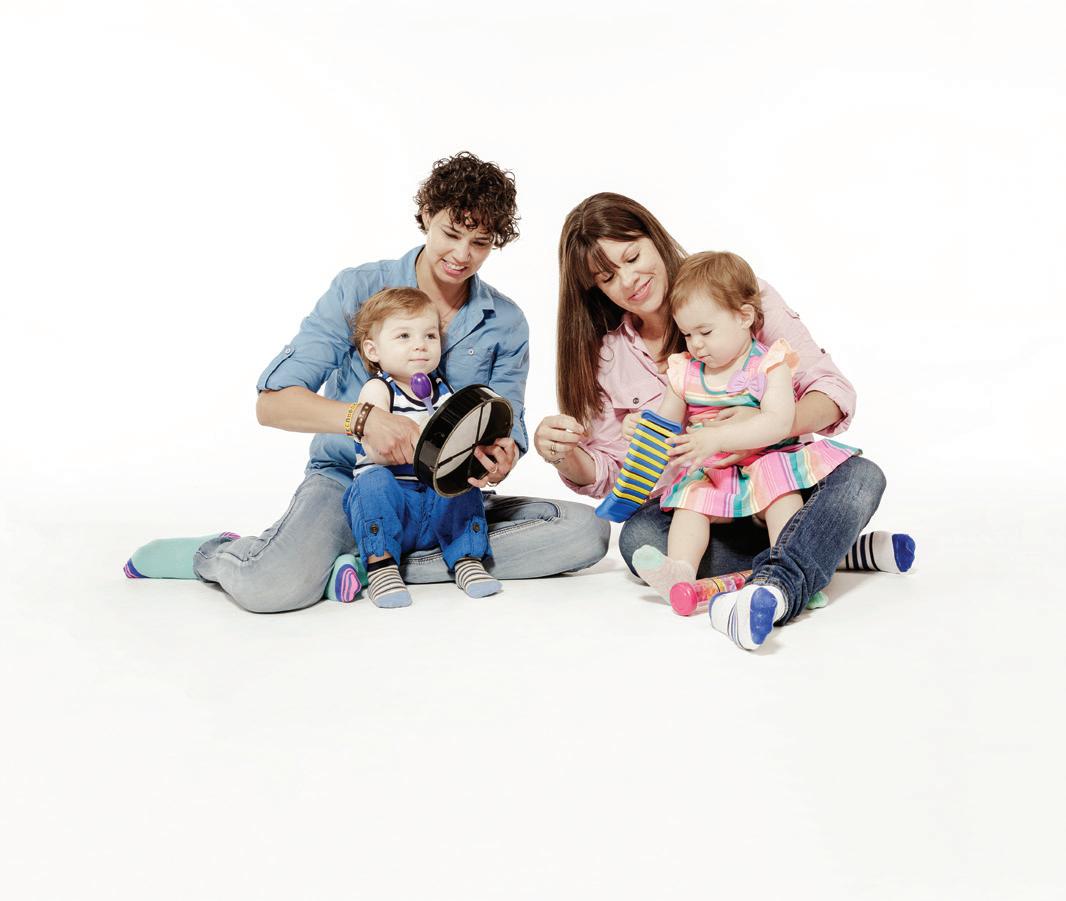
4 minute read
Thumb Sucking 101
Thumb Sucking 101 health
How to handle this common childhood habit—and tips to get your child to stop
Advertisement
By Jaimie Seaton
If your baby or toddler is a dedicated thumb sucker, don’t worry— it’s perfectly normal. Rooting and sucking are natural reflexes for babies, and sucking a finger, thumb, or even a toe is comforting. In fact—as you may know from your ultrasound photos—many babies begin thumb sucking in the womb, and it’s not uncommon for children to continue the habit well past their toddler years.
Pros and Cons Babies will often turn to thumb sucking if they are unhappy, hungry, or tired. That’s a good thing; we want our children to learn to self-soothe. And a 2016 study published in the journal Pediatrics found that children who sucked their thumb or bit their nails were less likely to develop allergies. “Even when the habit lingers past infancy, thumb-sucking is rarely something to be concerned about. It doesn’t indicate that a child has emotional problems or that he will still be sucking his finger when he’s a teenager,” says Sabine Hack, M.D., assistant professor of psychiatry at New York University School of Medicine. However, after the age of 5, thumb sucking can be detrimental to mouth and teeth development, according to Larissa Davids, D.D.S., owner of Rego Park Orthodontics. And it can lead to bite problems, including an anterior open bite (the teeth not coming together correctly) or a cross bite, and speech impediments.
When and How to Intervene Most children stop sucking their thumb by the age of 3 or 4, or they’ll suck only in times of stress or when going to sleep. There’s no cause for concern until the adult teeth start coming in, at about the age of 6. If your child is still thumb sucking at 5 years, that’s the time to address the issue. The Mt. Sinai Hospital website cautions parents against scolding or punishing their child for thumb sucking. After all, she’s doing it because it’s soothing and comforting, and nagging may actually ingrain the habit. Instead, Dr. Davids recommends talking to your child about the issue. It may be he is embarrassed and will welcome your assistance. Take a loving, positive approach, offering praise when he doesn’t suck. Beyond giving positive reinforcement, there are various methods you can employ to help your child. • Put her down for a nap earlier than usual, when you first begin to see her getting sleepy. • Offer a stuffed animal as a substitute. • Talk to your child about his frustrations or fears and help identify triggers for thumb sucking. • Use gentle reminders. • Keep her hands busy with fun activities. • Don’t ever ridicule or shame him.
What About Pacifiers? Some parents use pacifiers to wean their children from their thumbs. There’s good and bad on this front, too. Pacifiers at naptime and bedtime can reduce the risk for Sudden Infant Death Syndrome, according to Mt. Sinai’s website, because a pacifier might allow a baby’s airway to open further. It might also prevent her from falling into a deep sleep. (If the baby is breastfeeding, it’s best to wait until he’s 1 month old before giving him a pacifier.) Just as with the thumb, however, children may be attached to their “binky” long after they’ve left the nursery. Again, pacifiers can have a detrimental effect on oral development, so parents will want to break the habit by the time the child is 5, if not before. (Most children give up their pacifiers by 2 to 4 years old.)
When to Seek Professional Help Thumb sucking can be a difficult habit to break. If your child is resistant to your efforts, you may want to have your pediatrician or dentist speak to her, Dr. Davids says. Sometimes a message is better received when it doesn’t come from mom or dad. A medical professional can also advise you on using other methods, including putting a bandage or bitter nail polish on the thumb. If you choose the latter, be sure it’s a non-toxic substance that is safe for consumption. Above all, relax. If you’re stressed about your child’s thumb sucking, he will be too. Rest assured, she’ll eventually break the habit on her own.
Great Speakers. Great Learning. Helping Young Children Learn & Grow
APRIL 28 –MAY 1, 2020 WYNDHAM NEW YORKER HOTEL

17TH ANNUAL
Over 100 Speakers More than 80 Conference Sessions Full Day & Half Day Workshops 40 Exhibitors & Over 1000 Attendees
To register go to: www.YoungChildExpo.com or call 212-787-9700, ext. 333 Early Bird & Group Discounts Available

Presented by
2020_YCE_NYMP_1.6th ad.v1.indd 1 10/15/19 2:08 PM Want to know the best activities for families?
Subscribe to our family activity email newsletter NYMETROPARENTS.COM/REGISTER Discover the power of family music-making.

Astoria, Bayside, Forest Hills, and More




